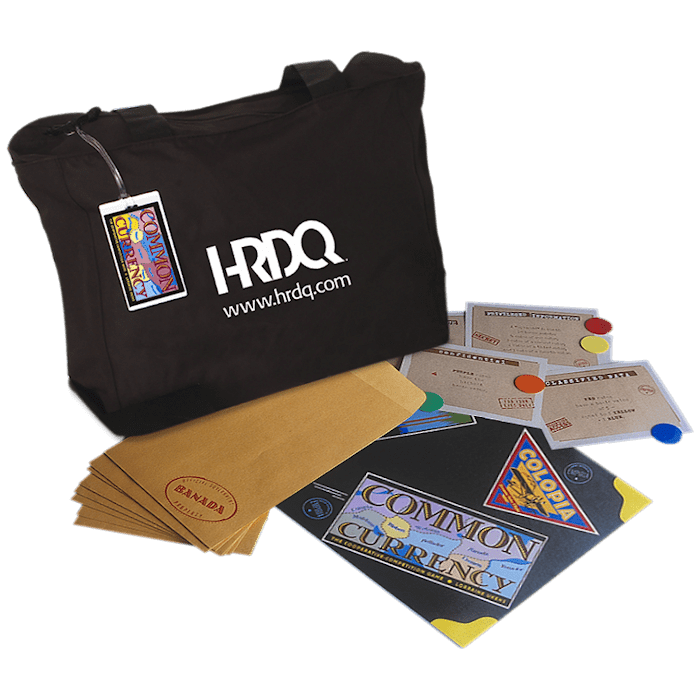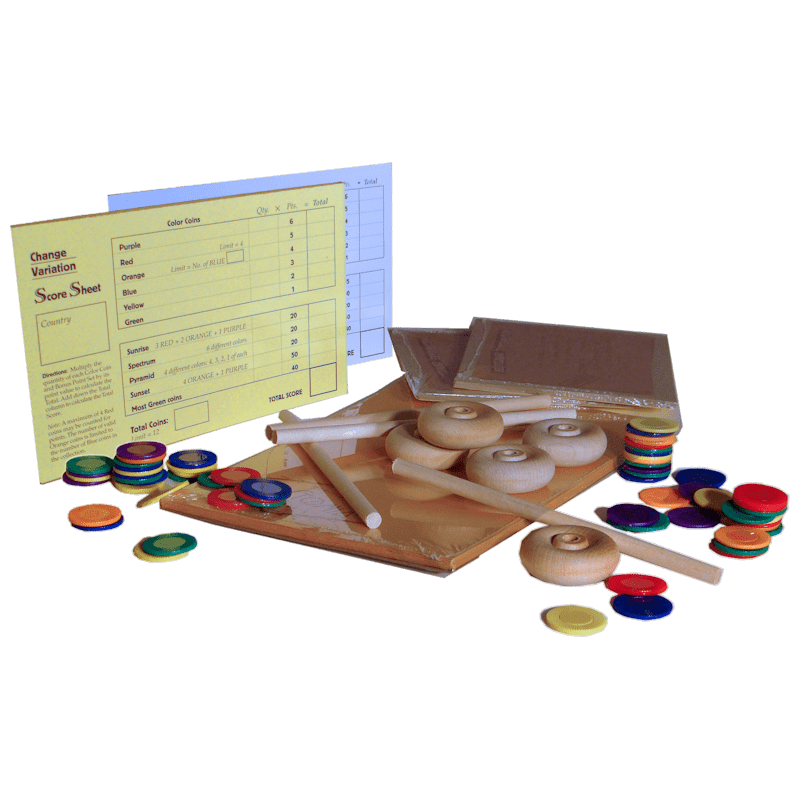Common Currency: The Cooperative-Competition Game
Common Currency: The Cooperative-Competition Game
Overview
Overview
Organizations are experiencing an overwhelming amount of change as they navigate the intricate and often contradictory demands of both their internal and external environments. In this competitive landscape, organizations must adapt to factors such as limited resources and the pursuit of greater productivity, among other factors. As companies gain a deeper understanding of the global market, they realize that competition is the norm, but that both competition and cooperation are essential.
However, is it possible to practice the strategies of competition and cooperation at the same time? Yes! Around the world, production teams, research and development groups, and marketing teams are benefiting from the power of cooperative-competition.
Discover a fresh approach to individual, team, and organizational development with Common Currency: The Cooperative Competition Game. Common Currency uses the concept of cooperative competition among teams to stress the importance of group interdependence. To win this game, each group must rely on collaboration with others to exchange information and resources. Thus, teams gain an understanding of the beneficial nature of competitiveness as they strive to do their best while maintaining healthy working relationships with other groups.
How It Works
How It Works
In Common Currency, teams representing fictional countries must cooperate in trading information while competing for the most valuable combination of coins. Why? The concept of change and how it affects the process of competition and cooperation can be illustrated clearly with this variation.
The coins and cards are randomly distributed in portions to each participating group. Therefore, teams would have diverse assortments of coin values and pieces of information. In an attempt to gain the most valuable coin collection, participants would need to cooperate within their team as well as negotiate with other groups for information and coins. The resulting interactions would establish the basis for the debriefing topics.
Learning Outcomes
Learning Outcomes
By the end of this workshop, participants will:
- Learn the basic principles of cooperative-competition.
- Discover how competition and cooperation helps teams and individuals achieve the greatest results.
- Develop the team and interpersonal skills that drive cooperative-competition.
- Understand how cooperative-competition benefits the entire organization.
Uses and Applications
Uses and Applications
This game is a flexible, team-based activity utilizing a wealth of interpersonal and group process skills. We especially like using it as part of negotiating and strategic planning workshops, but it's ideal for a wide array of training topics. The facilitator guide includes debriefs for training in team building, communication, negotiating, strategic planning, decision making, problem solving, resource sharing, and more. Also included is a separate change module, which demonstrates the value of cooperative-competition in times of change.
All group interactions involve both task (outcome) and relationship (process) skills. Common Currency is an excellent tool to address all aspects of teamwork and strategic planning, including:
- Leadership development
- Open communication
- Conflict resolution
- Principled negotiation
- Problem solving
- Managing change
- Decision making
What to Order
What to Order
Complete Game Kit: Order One Complete Game for up to 48 Participants
The Complete Game Kit includes:
- Color Coins
- Information Cards
- Identification Flags and Envelopes
- Scoring Sheets
- Facilitator Guide
- Tote Bag
Extra Game Parts Kit: Order One Extra Game Kit for up to 48 Additional Participants
The Extra Game Parts Kit includes additional Color Coins, Information Cards, Identification Flags, Envelopes, and Scoring Sheets.
Author Info
Author Info
Lorraine Ukensis the owner of Teaming With Success, which specializes in team building and experiential learning. Her experience is in designing, facilitating, and evaluating programs in a variety of human resource development areas. She received her MS degree in human resource development from Towson University in Maryland.
Focus: Communication
Type: Game
Delivery: Print
LENGTH: 1.5 to 3 hours
Share






